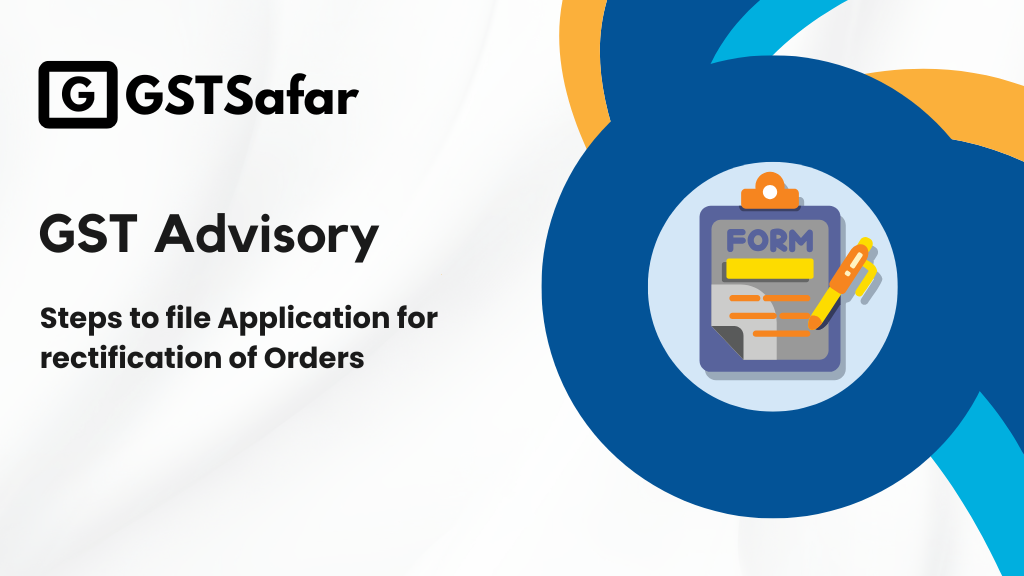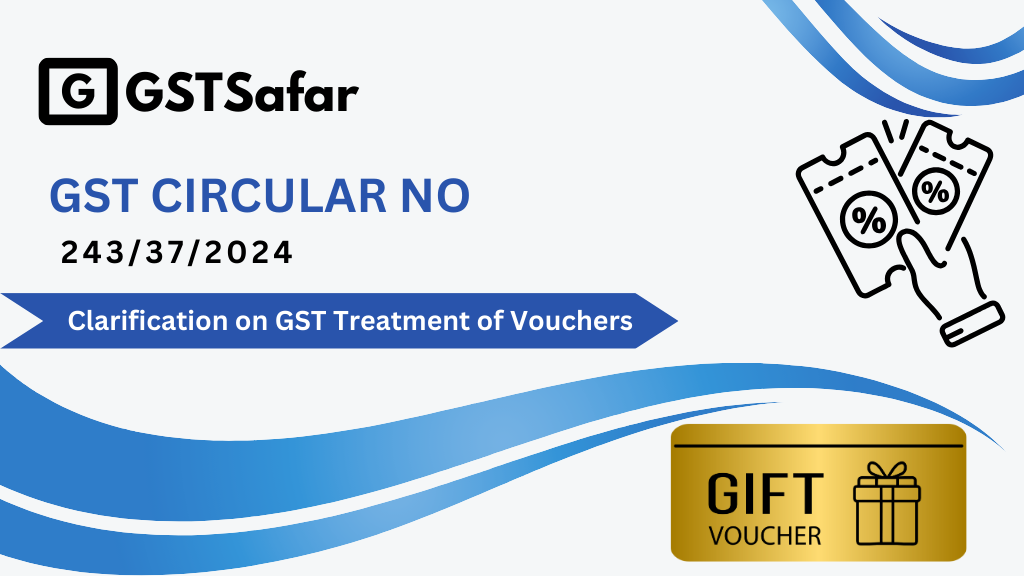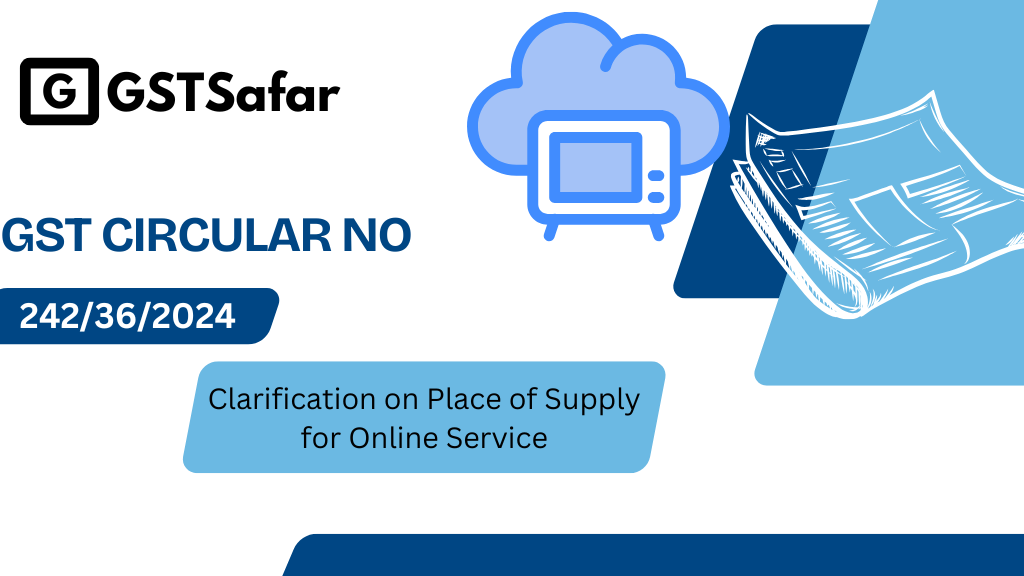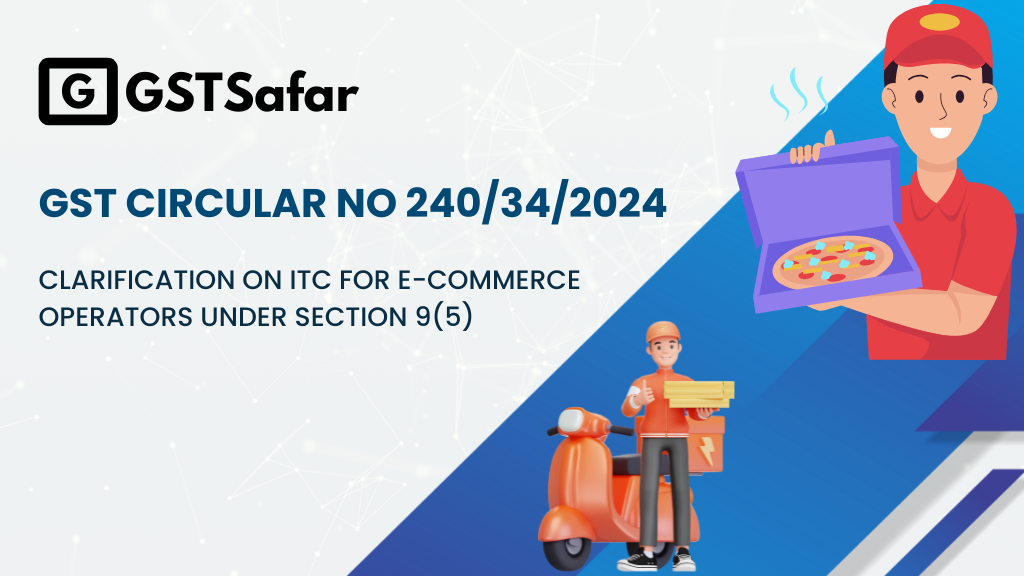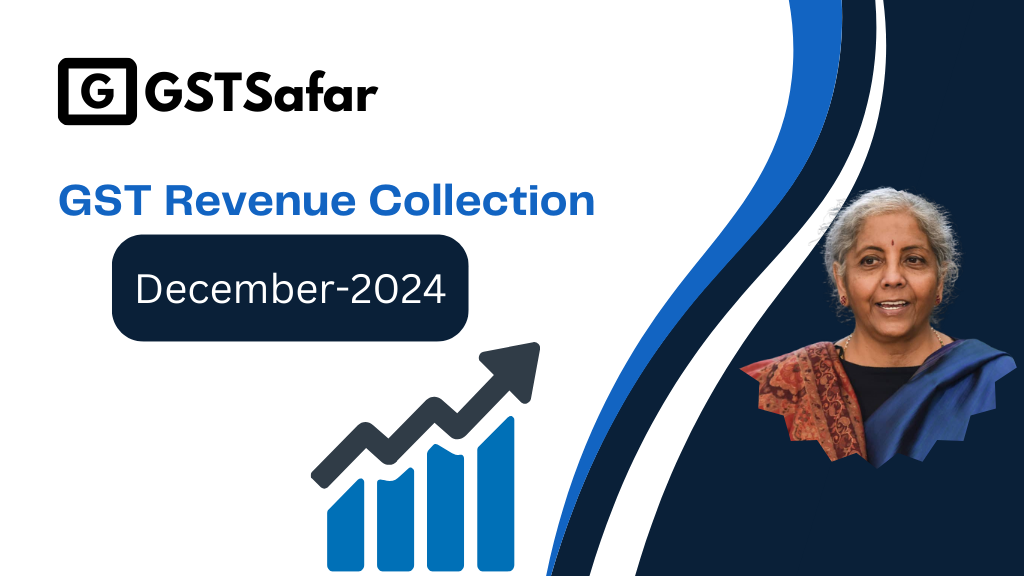The Circular No. 178/10/2022-GST,dated 03.08.2022 has focused on GST Applicability on liquidated damages, compensation and penalty arising out of breach of contract or other provisions of law
There has always been question whether GST will be applicable or not on damages, penalty, compensation etc.
I have personally observed that many officers directory take resort of para 5 ( e ) of Schedule II of CGST Act, and says that has it is tolerate an act or situation or as its agreeing to be obligation to refrain from act and therefore GST will be applicable.
Surprisingly many professional doing practice in GST also come to the same conclusion and they insist their client to pay GST even on recovery of penalty, compensation etc.
In order to resolve such conflicts and to avoid the future litigations fortunately our government has issued clarification on these burning issues by issue of circular 178/09/2022 on 03/08/2022
First of all its very important to know this entry in para 5 (e) of Schedule II of CGST Act in very minute level.
As per para 5 ( e ) of Schedule II of CGST Act, “Agreeing to the obligation to refrain from an act or to tolerate an act or a situation, or to do an act” has been specifically declared to be a supply of service, than let us understand the above clause thoroughly-:
Agreeing to the obligation to refrain from an act-
When a Taxpayer agrees to legally/morally stop oneself from performing an act though the said act is profitable for the taxpayer.
Example of such activities would be a builder refraining from constructing more than a certain number of floors, even though permitted to do so by the municipal authorities, against a compensation paid by the neighbouring housing project, which wants to protect its sunlight, or an industrial unit refraining from manufacturing activity during certain hours against an agreed compensation paid by a neighbouring school, which wants to avoid noise during those hours.
Agreeing to the obligation to tolerate an act or a situation-
When a Taxpayer ignores/tolerates an act or a situation of any other person (there must be option with Taxpayer to not to tolerate such situation/act).
Example of such activities would be a shopkeeper allowing a hawker to operate from the common pavement in front of his shop against a monthly payment by the hawker
Agreeing to the obligation to do an act-
When a taxpayer agrees to perform an Act for the benefit of other person
Example of such activities would be where an industrial unit agrees to install equipment for zero emission/discharge at the behest of the RWA of a neighbouring residential complex against a consideration paid by such RWA, even though the emission/discharge from the industrial unit was within permissible limits and there was no legal obligation upon the individual unit to do so.
- There has to be an express or implied agreement; oral or written, to do or abstain from doing something against payment of consideration for doing or abstaining from such act, for a taxable supply to exist. Hence it cannot be imagined or presumed to exist just because there is a flow of money from on party to another.
- However, unless payment has been made for an independent activity of tolerating an act under an independent arrangement entered into for such activity of tolerating an act, , such payments will not constitute ‘consideration’ and hence such activities will not constitute “supply” within the meaning of the Act. Taxability of these transactions is discussed in greater detail in the following paragraphs.
Now based on understanding of this entry government has given clarification on GST applicability on various issues as under
GST on Liquidated Damages
Question is that whether GST is applicable on liquidated damages paid for breach of Contract?
Answer is no.
Reason for that given in circular as under
- Liquidated Damages received due to Non-performance or breach of contract by other party will not be considered as Supply under GST.
- As per Section 73 of “The Contract Act, 1972”, when a contract has been broken than the party which suffers by such breach is entitled to receive from the other party compensation for any loss or damage caused to him by such breach. Hence is discernible that such compensation is not any other independent activity but it is just and event in the course of performance of that contract.
- As Contract is entered into for execution and not for breach and the liquidated damages or penalty are not the desired outcome of the contract.
- Therefore liquidated damages is an amount paid only to compensate for injury, loss or damage suffered by the aggrieved party due to breach of the contract.
- Such Liquidated damages are mere a flow of money from the party who causes breach of the contract to the party who suffers loss or damage due to such breach.
Also as para 5 ( e ) of Schedule II such transaction is not considered as Supply of Service because:
Agreeing to the obligation to refrain from an act- Here the party paying consideration is the reason of Non-performance or breach of Contract and not the aggrieved party.
Agreeing to the obligation to tolerate an act or a situation- Here the question of tolerating an act will not arise as the contract itself is breached.
Agreeing to the obligation to do an Act-Breach or non-performance of contract does not fall here.
The key in such cases is to consider whether the impugned payments constitute consideration for another independent contract envisaging tolerating an act or situation or refraining from doing any act or situation or simply doing an act. If the answer is yes, then it constitutes a ‘supply’ within the meaning of the Act, otherwise it is not a “supply”.
Other examples that may be covered here are the penalty stipulated in a contract for delayed construction of houses. It is a penalty paid by the builder to the buyers to compensate them for the loss that they suffer due to such delayed construction and not for getting anything in return from the buyers.
GST on Compensation for Cancellation of Coal Blocks
Will GST applicable on Compensation for Cancellation of Coal Blocks will not considered as Supply under GST?
Answer is no.
Reason for that explained in this circular as under
- Consideration paid by Indian Government towards the transfer of their rights/ titles in the land, mine infrastructure, geological reports, consents, approvals etc. to the new entity (successful bidder) as per the directions of Hon’ble Supreme Court will not be considered as Supply under GST and accordingly there will be no levy of GST on it.
- In the year 2014, coal block/mine allocations were cancelled by the Hon’ble Supreme Court vide order dated 24.09.2014. The compensation was given to them for such cancellation, not under a contract between the allottees and the Government, but under the provisions of the statute and in pursuance of the Supreme Court Order.
- Also, allottees had no option but to accept the cancellation hence such will not be considered as agreeing to tolerate an act
GST on Cheque Dishonor charges
Will GST be applicable on Fine/Penalty on Dishonor of Cheque is not a Supply?
Answer is no
The matter has been explained in this circular as under
- Fine/Penalty imposed by supplier or banker on dishonor of any Financial Instruments will not be considered as Supply and accordingly there will be no levy of GST on it.
- Financial Instruments are meant to be realized. There is never an implied or express offer or willingness on part of the supplier that he would tolerate deposit of an invalid, fake or unworthy instrument of payment against consideration in the form of cheque dishonour fine or penalty.
- The fine or penalty that the supplier or a banker imposes, for dishonour of a cheque, is a penalty imposed not for tolerating the act or situation but a fine, or penalty imposed for not tolerating, penalizing and thereby deterring and discouraging such an act or situation.
GST on penalty for violation of laws.
Penalty Imposed on Violation of Laws is not a Supply under GST and therefore GST will not be applicable.
This matter has been clarified in this circular as under.
- Penalty imposed by Government for violation of laws will not be treated as Supply under GST and hence no RCM liability will arise in such payment to Government.
- Penalty imposed for violation of laws such as traffic violations, or for violation of pollution norms or other laws are also not consideration for any supply received.
- They stipulate penalty not for tolerating violation but for not tolerating, penalizing and deterring such violations.
GST on notice pay recovery
The question is that whether GST will be applicable on Forfeiture of Salary or Bond amount in case of Pre-Mature quitting of Employment is not a Supply
This matter has been clarified in this circular as under
- The Provisions for forfeiture of salary or recovery of bond amount in the event of employee leaving the employment before the minimum agreed period will not fall in the ambit of consideration against supply as the amount recovered by the employer not as consideration for tolerating such premature quitting of employee but as penalties for such non-serious act of employee.
- Further the employee does not get anything in return from the employer against payment of such amounts. Also Employer has no option to reject the pre-mature quitting of Employee hence it is not a tolerance of act.
GST on Compensation for not collecting Toll Charges
Compensation for not collecting Toll Charges is not an obligation to refrain from an act and therefore GST will not be applicable
During Pre-GST Era, in the wake of demonization, NHAI directed the concessionaires (toll operators) to allow free access of toll roads to the users from 8.11.2016 to 1.12.2016 for which the loss of toll charge was paid as compensation by NHAI as per the instructions of Ministry of Road Transportation and Highways.
However it has been clarified vide Circular No. 212/2/2019-ST dated 21.05.2019 that the service that is provided by toll operators is that of access to a road or bridge, toll charges being merely a consideration for that service. Although consideration came from a person other than the actual user of service does not mean that the service has changed.
Hence, applying the provisions of GST in it, it is not agreeing to the obligation to refrain from an act as Act is been performed but only consideration is received from other person.
Hence, taxability of main supply will be carried on and not of agreeing to the obligation to refrain from an act.
GST on late fees for late payments|GST on interest for late payments
GST on Fine/Penalty/Late fees/Interest for late payments will be applicable if principle supply is taxable
- Almost all service providers across the world provide the facility of accepting late payments with late fine or penalty.
- Even if this service is described as a service of tolerating the act of late payment, it is an ancillary supply naturally bundled and supplied in conjunction with the principal supply, and therefore should be assessed as the principal supply.
- Since it is ancillary to and naturally bundled with the principal supply it should be assessed at the same rate as the principal supply.
- For example GST rate on principle supply is 12%, then interest recovered for late payment of such supply also will be taxable @ 12% in GST. By the same way if principle supply is exempt, then late payment charges for such exempt supply also will be exempt in GST
GST on fixed monthly charges for electricity
Matter has been clarified in this circular as under
- Fixed charges for Power paid will attract the same rate as principal supply.
- It is common business practice in power generating Companies/Water Supply Companies that they will collect a minimum fixed charge irrespective of the units consumed.
- Hence as the minimum fixed charges/capacity charges and the variable/energy charges are charged for sale of electricity and are thus not taxable as electricity is exempt from GST.
Cancellation Charges will be treated as Principal Supply
- Facilitation supply of allowing cancellation of an intended supply against payment of cancellation fee or retention or forfeiture of a part or whole of the consideration or security deposit in such cases should be assessed as the principal supply.
- Cancellation fee can be considered as the charges for the costs involved in making arrangements for the intended supply and the costs involved in cancellation of the supply.
- The facilitation service of allowing cancellation against payment of cancellation charges is naturally part of the Principal supply. Therefore, facilitation supply of allowing cancellation of an intended supply against payment of cancellation fee or retention or forfeiture of a part or whole of the consideration or security deposit in such cases should be assessed as the principal supply.
- For Example: the amount forfeited in the case of non-refundable ticket for air travel or security deposit or earnest money forfeited in case of the customer failing to avail the travel, tour operator or hotel accommodation service or such other intended supplies should be assessed at the same rate as applicable to the service contract, say air transport or tour operator service, or other such services.
- However, forfeiture of earnest money by a seller in case of breach of “an agreement to sell” an immovable property by the buyer is a mere flow of money. Forfeiture of earnest money is stipulated in such cases not as a consideration for tolerating the breach of contract but as a compensation for the losses suffered and as a penalty for discouraging the non-serious buyers or bidders. Such payments being merely flow of money are not a consideration for any supply and are not taxable.
- Also such amounts paid for acceptance of late payment, early termination of lease or for pre-payment of loan/lease agreement though referred as fine or penalty are subject to GST. Since such supplies are ancillary to the principal supply for which the contract is signed, they shall be eligible to be assessed as the principal supply.



